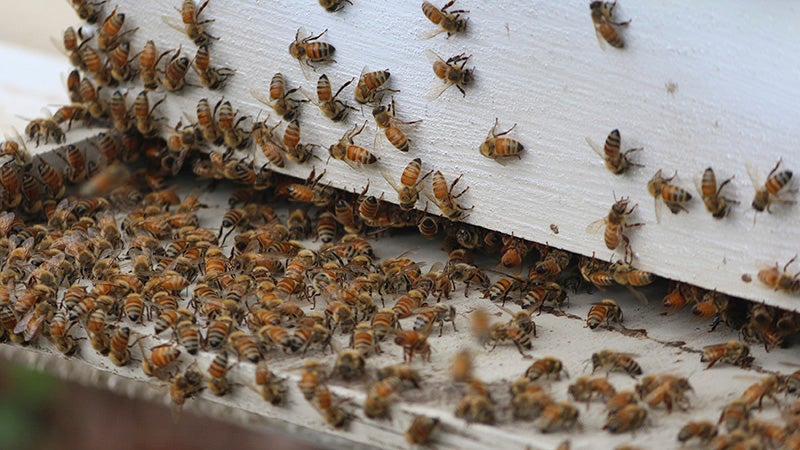Crosby Arboretum hives provide products for sale
Published 7:00 am Saturday, August 26, 2017

- Busy as bees: Picutred is the entrance to one of two honey bee hives at the Crosby Arboretum. When the hives are at full strength, the excess honey and wax they produce will be sold at the gift shop. Photo by Jeremy Pittari
Just off the trails of the Crosby Arboretum are two colonies of creatures whose work may have long lasting effects at the local tourist attraction.
Honeybee hives were donated to the Arboretum recently by local beekeepers, one of which is caring for them. Hobbyist beekeeper, Jac Coleman, said he donated one when he split one of his personal hives.
Coleman got involved in beekeeping about three years ago after sitting in on a beekeeping presentation at his local church.
When he started caring for the beehives at the Arboretum, human hands hadn’t touched them in two or three years. That meant there was a lot of honey in the hive.
He took the excess honey and wax and processed it this spring, creating products that are now being sold at the Arboretum to help fund its operation.
While he put the honey in jars, his wife made candles from the wax.
Once his newfound interest was sparked, he bought the necessary equipment and began caring for hives. He sells the honey he collects from his personal hives, and uses those funds to continue to care for and expand them.
While the bees do most of the work on their own, some maintenance is required. Coleman said his job is to protect the hives from pests and disease and provide any care that is required.
“If you treat them well they do two things well, make other bees and make honey,” Coleman said.
But the weather has caused the bees at the Arboretum to slow their honey production. Coleman said that when it rains a lot, the flowers don’t bloom, and when flowers don’t bloom the bees don’t have access to pollen and nectar to make their food.
This result has caused Coleman to put off harvesting any more honey at the Arboretum for the time being.
He said honeybees typically make more than three times the honey they can eat. So while he can safely harvest the extra honey when production is high, he refrains from taking any when the hive’s reserves are low.
During these times he also supplements the bees’ diet with syrup and sugar patties.
He has added some boxes to the hives at the Arboretum so they can expand the hive when honey production resumes, but so far the extra space has remained empty.
Honey is not the only product bees provide to humans. The wax can be used to make hand and face creams in addition to candles. Coleman said the wax is actually more valuable per pound than the honey.
When there is enough, Coleman said he is interested to see how the honey being produced at the Arboretum will taste, since the pollen and nectar from the flowers nearby lend to that aspect of the product.
The products for sale at the Arboretum can be found in the gift shop of the visitor’s center, which is located off of Ridge Road in Picayune.




